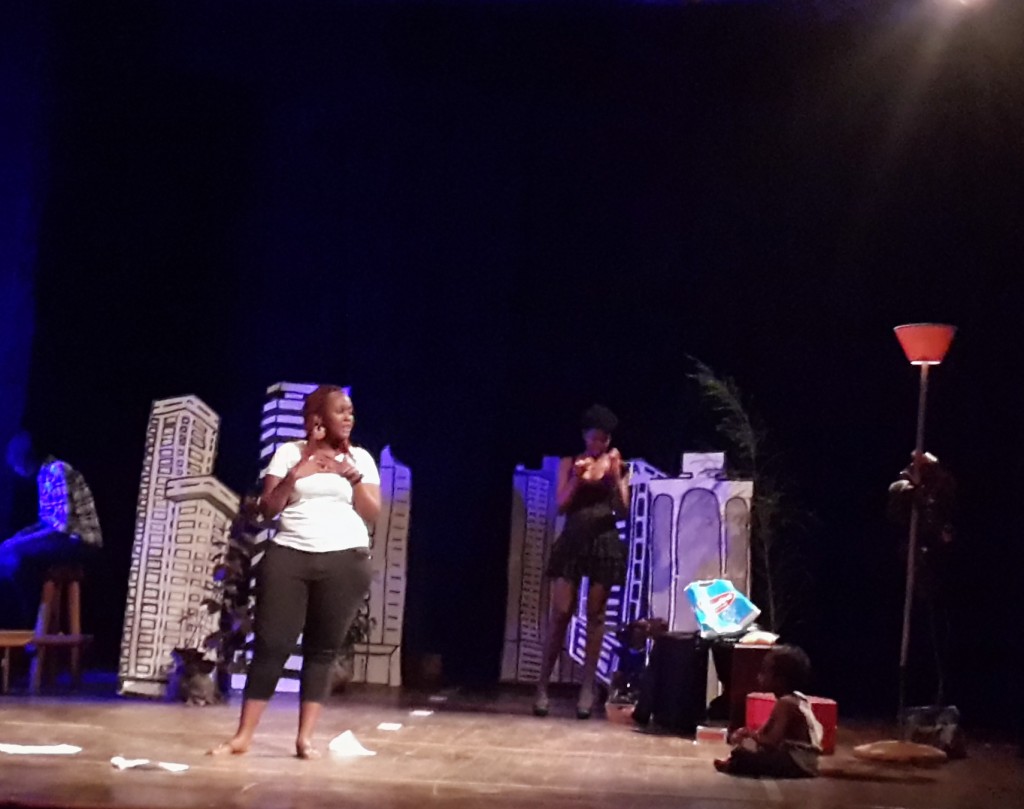In official linguistic circles, the language is called West African Pidgin English. It came into being on the coast of Guinea in the 17th century when British merchants succeeded the Dutch as the prominent seafaring group stationed on the West African Coast.
1. You have to be very cautious when you are planning an event during the World Cup season or you will end up at your own event by yourself. Unless of course you are the Lantern Meet of Poets, holding your 10th recital and are brave enough to take the risk. And the risk did pay off because it was a full house yesterday when I attended the Lantern Meet and Friends poetry recital. It makes me very happy to see that the small group that had its first show in that small room at the National Theatre can have a full house and they still deliver the quality of work we have come to know them for. With each recital I find something new to enjoy, this time that they included performances in Luganda and Lusoga (very hilarious too!). It is also good to see new faces among the performers because this is a sign of growth! Great show Lantern Meet of Poets. Keep writing those poems! (More photos from the recital on the Sooo Many Stories Facebook Page)
2. I have been thinking quite a lot about our local languages and how they can be incorporated in English texts without distracting readers and without alienating readers that do not speak that language. I have found myself thinking of not only our local languages as we know them but also luyaaye (as popularised by Bobi Wine) and I have listened to Kiswahili speakers discuss Sheng.
Pidgin English: A Language of Flowery metaphors, Slangs and Jokes, an interview with Nigerian journalist, Ruona Agbroko-Meyer, is a good read that explains how we relate with language and how we can use our languages to include more people in discussions that affect their lives.
She explains it this way:
Pidgin English may be spoken more amongst the uneducated masses but the educated masses have it as a second language at the very least. There are people who will never be able to, or even have no interest in speaking English; does that mean they are not entitled to information? They aren’t entitled to programming? Thank goodness the folks at WazobiaFM aren’t buying into that school of thought! Because while our educational systems are being upgraded, should the public be allowed to wander about, unaware of basic concepts critical to their comprehension of the world just because they are only fluent in Pidgin? All language is critical to the core of humanity’s existence—the concept of communication and interaction is far beyond appearances of “tooshness.” The US ambassador spoke Pidgin on WazobiaFM and endeared Nigerians…is he now mediocre or not “toosh”?
Read the rest of there interview here.
– See more at: http://brittlepaper.com/2014/06/pidgin-english-language-ruona-agbroko-meyer/#sthash.HXljfChC.dpuf
In official linguistic circles, the language is called West African Pidgin English. It came into being on the coast of Guinea in the 17th century when British merchants succeeded the Dutch as the prominent seafaring group stationed on the West African Coast.
– See more at: http://brittlepaper.com/2014/06/pidgin-english-language-ruona-agbroko-meyer/#sthash.HXljfChC.dpuf
3. Still on language, Jamila Lyiscott in her powerful spoken-word essay Broken English, celebrates and challenges the three distinct flavours of English she speaks with her friends, in the classroom and with her parents. As she explores the complicated history and present-day identity that each language represents, she unpacks what it means to be “articulate.” Watch her here.
4. Remember that article about African books with an orange sun and an acacia tree and Arabic literature with a veiled face? It turns out, most autobiographies have the subject on the cover with their hand under their chin! And now, after a couple of books with the same titles, we wonder whether authors an publishers are running out of book titles!
5. If you are a writer trying your hand at Science Fiction, this blog post might help: Alternate Visions: Some Musings on Diversity in Science Fiction.
Of Speculative Fiction, the writer says:
The best speculative fiction, like travel, does that to you – it takes you to strange places, from which vantage point you can no longer take your home for granted. It renders the familiar strange, and the strange becomes, for the duration of the story, the norm. The reversal of the gaze, the journey in the shoes of the Other, is one of the great promises of speculative fiction. Much of the time it doesn’t deliver, however. Much of the time you get to go to other worlds with your feet firmly encased in your own shoes, carrying around your perspectives and prejudices as though you had never left home.
Read the rest of the post here: Alternate Visions: Some Musings and Diversity in Science Fiction
6. If you have not had a chance to meet Jennifer Nansubuga Makumbi, author of Kintu, she will be at Femrites’ Readers/Writers Club from 5:30pm today. See you there?
7. If you have ever felt like this, it is true, you are addicted to books. And it is okay.
Have a fruitful week, friends!


